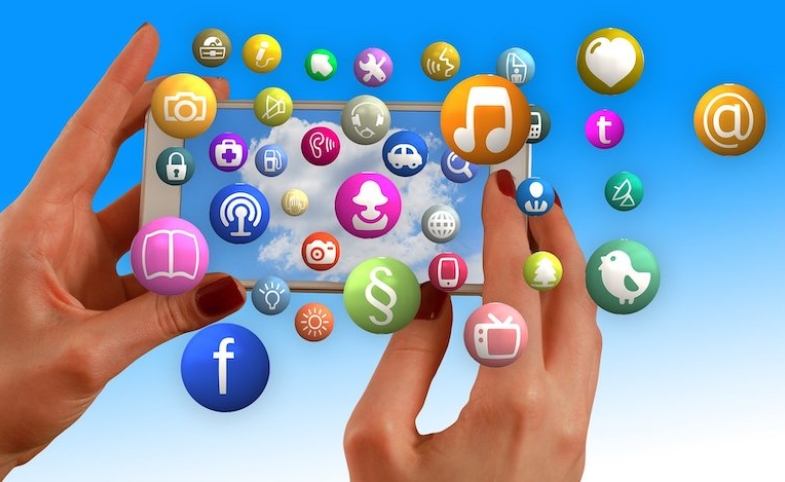To be an effective public diplomat, you need a well of sufficient soft power resources on which to draw. There is no canonical definition of public diplomacy (PD), but the official practice of it involves using informational...
KEEP READINGThe CPD Blog is intended to stimulate dialog among scholars and practitioners from around the world in the public diplomacy sphere. The opinions represented here are the authors' own and do not necessarily reflect CPD's views. For blogger guidelines, click here.

Pandemic-Time U.S. Public Diplomacy in Georgia
With the COVID-19 crisis now reshaping the world of diplomacy in unforeseen ways, efforts aimed at maintaining consistent public diplomacy overseas during the pandemic can give a more comprehensive sense of the bilateral relationships between nations. The United States sustained its leadership in pandemic-time public diplomacy by remaining in close two-way digital communication with people in the Republic of Georgia.
Digital engagement strategies are not new to public diplomacy. However, with the rise of social distancing and temporary pausing of in-person programs, seeking out actionable ways to connect through digital public diplomacy has become an urgent matter. If increasing digital outreach to targeted audiences is a public diplomacy strategic objective, then a huge increase in the amount of time people spend online during the lockdown can be seen as a positive opportunity as it may lead to a surge in digital engagement via social media.
As the pandemic has unfolded, the U.S. Embassy Tbilisi’s Facebook Page became a digital space for addressing the real-time needs of Georgia, central to which was the development of online education. "American Story Time,” a digital public diplomacy program launched by the U.S. Embassy Tbilisi in March 2020, immediately reached its target society by prioritizing manifestly its principal goal: to help Georgian youth learning English as education institutions remained closed and moved online. Going live on Facebook – alone or with family members – to read American stories starting from The Lorax by Dr. Seuss to The Gift of Nothing by Patrick McDonnell and more, American diplomats coordinated efforts to spread authentically the image of the United States, its culture and society in the best ways possible. In addition of being an enjoyable activity, each story time increases understanding of American values. Showing that reading stories is more than a means to spark a connection with family and friends, this program promoted the role of storytelling in public diplomacy to connect societies.
On the one hand, this digital public engagement strategy highlights the irreplaceable role of promoting education to widen interaction with a younger audience. On the other hand, it reaffirms the centrality of public diplomacy in U.S.-Georgia relations. Evidently now more than ever the synchronized actions U.S. public diplomats are taking in Georgia to digitally engage the public will strengthen U.S.-Georgia relations for decades to come.
Apart from this particular activity, pandemic-time public diplomacy also restructured the traditional practice of jazz diplomacy. To celebrate International Jazz Day 2020, a special home concert of the Ari Roland Quartet virtually linked New York City and Georgia by playing American jazz compositions and renditions of Georgian songs.
Furthermore, American Spaces across Georgia enlarged their online outreach and diversified their thematic programs through Facebook pages. Even though their in-person or digital engagement activities – including clubs, Facebook posts, live broadcasts and speaker programs - are primarily and thematically focused on the needs of their local communities, their online audience has grown in a time of pandemic nationally and internationally. For example, having speakers, participants and viewers living outside those regions of Georgia where American Spaces operate, or from abroad, shows how a diversification of digital diplomacy strategies can shape the future practice of American Spaces and grow the online audience with the right social media content.
If there are few signs of the pandemic ending soon, then it will become increasingly visible that Americans do not see public diplomacy only in terms of what and when they want. U.S. public diplomacy always values the needs of its strategic partners. Besides putting online education in the center of its public engagement strategies, pandemic-time U.S. public diplomacy charted the next phase of the U.S.-Georgia education exchanges by expanding the Fulbright English Teaching Assistant Program in May 2020. Overall, all these public diplomacy efforts add more certainty to the present and future of the U.S.-Georgia strategic partnership. Firstly, the global coronavirus pandemic has not stopped the United States from being connected with the people of Georgia. Secondly, no matter how severely this pandemic impacted global financial shifts, regular U.S. public diplomacy in Georgia plays an important role in its global process of soft power maintenance.
During the last few months “American Story Time” and online jam sessions organized by the U.S. Embassy Tbilisi or diverse online activities of American Spaces in Georgia illustrate that sometimes short targeted and timely programs can better serve U.S. public diplomacy to inform and engage Georgian society, especially when people are urged to stay at home during the outbreak of the COVID-19.
Call it Stay-At-Home Diplomacy or CovAid Diplomacy, pandemic-time U.S. public diplomacy is a real-time diplomacy. Although public diplomacy is established firmly in the U.S. foreign policy process toward Georgia, the best of what public diplomacy is, has and does in terms of bilateral relations can be promoted in a time of pandemic. The future of U.S. public diplomacy will be shaped by this experience – if and when the pandemic happens or not.
Visit CPD's Online Library
Explore CPD's vast online database featuring the latest books, articles, speeches and information on international organizations dedicated to public diplomacy.
POPULAR ARTICLES
-
January 29
-
January 20
-
January 28
-
January 2
-
January 8
Join the Conversation
Interested in contributing to the CPD Blog? We welcome your posts. Read our guidelines and find out how you can submit blogs and photo essays >.













